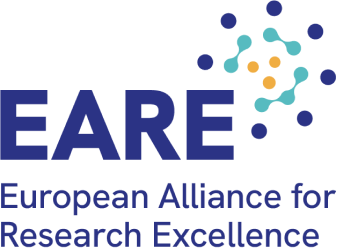
The EU must persist in advancing knowledge valorisation, and research access to foster innovation
The European Union has recently stepped up its efforts to advance research and innovation across Europe, aligning closely with EARE’s core mission and values, and presaging positive policy developments for the sector over the next EU mandate.
In late June, the European Council adopted its strategic agenda which set up the EU’s strategic orientation for the period 2024-2029. A key priority which will mark the next EU’s agenda will be the promotion of an innovative environment, boosting Europe’s research and innovation capacityin emerging and enabling technologies, including for dual use. This priority will be crucial for the European Union to be able to compete internationally in the coming years.
In May, the Council of the EU adopted Conclusions on strengthening knowledge valorisation within the EU, fostering a competitive EU industry and promoting strategic autonomy. In these Conclusions, the Council invited the Commission to explore opportunities for incentivising knowledge valorisation, a key process to create social and economic value from knowledge obtained from research. The Council also called on Member States and the Commission to implement strategies that encourage businesses to collaborate with EU researchers, bringing innovative technologies to the EU. Similarly, the conclusions recognized the importance of research excellence in the creation of knowledge to develop disruptive technologies such as Artificial Intelligence.
These Conclusions follow the publication of Enrico Letta’s report on the future of the single market, which proposes the introduction of a fifth freedom focused on research, innovation, knowledge, and education. This ambitious proposal will strengthen EU’s single market innovation capabilities, addressing EU’s current challenges in converting its research into European competitive industries. A central pillar of this strategy will be the creation of a European Knowledge Commons, a centralised, digital platform providing access to publicly funded research, data sets, and educational resources allowing citizens, researchers, and businesses to use this data for innovation and societal progress. This strategy follows EARE’s principle that data should be “as open as possible, as closed as necessary”.
Alongside these initiatives, the European Commission published a new study evaluating the effects of the EU copyright framework on research with the aim to improve the access and reuse of research results, publications, and data for scientific purposes. This study shed light on the need to adopt a Secondary Publication regime to ensure flexibility and open-ended research exceptions. Among its conclusions, the study recommended addressing the differentiation between commercial and non-commercial uses of data, which is considered as outdated. The study also suggested adopting further guidance in relation to the text and data mining provisions in Article 3 and 4 of the Directive on Copyright in the Digital Single Market to promote a more uniform approach across Member States. EARE welcomes the insights of this study and encourages the Commission to follow these recommendations, clarifying text and data mining provisions to unleash Europe’s full research potential.
All these new developments reflect the EU institutions’ commitment to shaping policies that foster data sharing, innovation, and competitive European research in the coming years. These ideas constitute the core mission of EARE. To maximise Europe’s innovation potential, we call on the European Commission to consider all these recommendations and put forward an Act for Excellence in European Research & Innovation. Only a comprehensive policy approachcan address the challenges detailed above, ensuring access to high quality data sets and promoting knowledge sharing for strategic autonomy and EU innovation. Our organization will continue supporting EU institutions, researchers, and research organizations to unlock the EU’s research & innovation potential.


